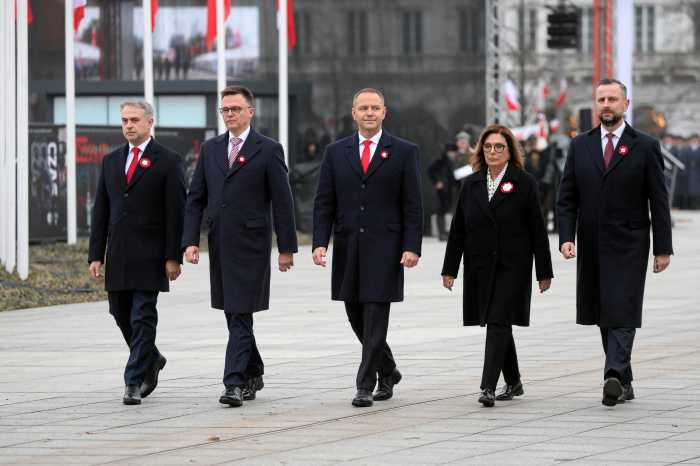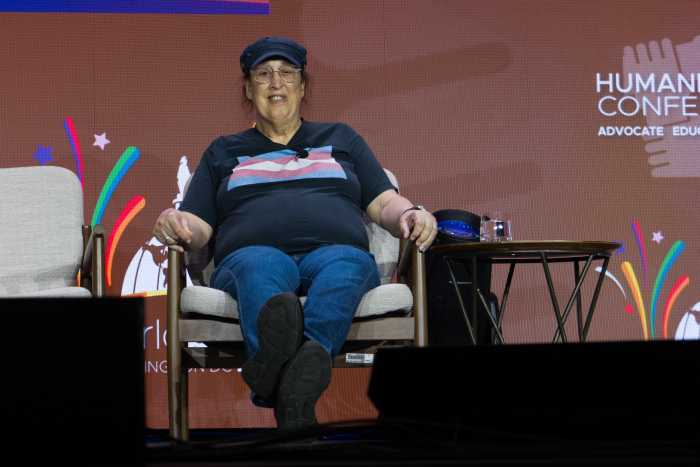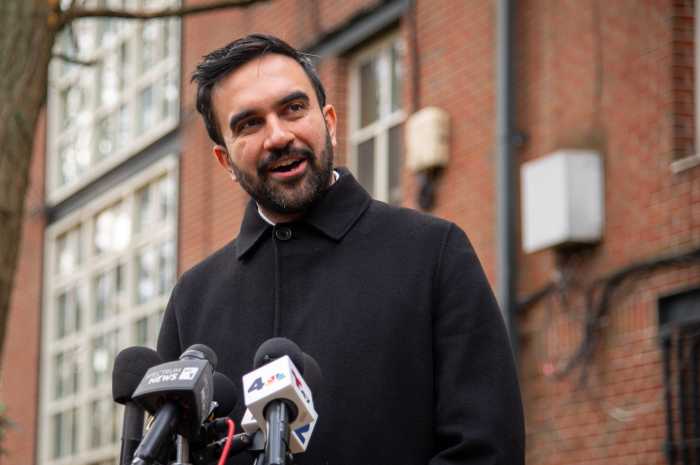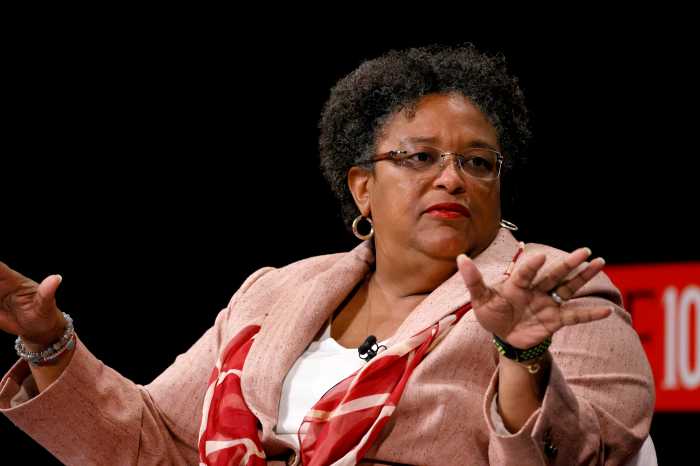A think-tank affiliated with Germany’s Social Democratic Party issued a new report in March that shows alarmingly high levels of homophobia in Eastern Europe as well as widespread opposition to same-sex marriage among many Western and Southern European countries.
Dr. Beate Küpper, a researcher from the University of Bielefeld who co-authored the Friedrich Ebert Foundation’s study, told Gay City News that Hungary and Poland, in particular, manifested extraordinarily high expressions of homophobia as well as sexism.
In response to the statement “There is nothing immoral about homosexuality,” 75.8 percent of Poles and 67.7 percent of Hungarians disagreed. The Netherlands showed the greatest acceptance of homosexuality, with only 16.5 percent disagreeing with the statement.
Asked whether “it is a good thing to allow marriages between two men or two women,” Poland (88.2 percent) and Hungary (69.3 percent) showed the highest negative responses. On this score, too, the Netherlands had the most pro-gay response, with a mere 17 percent disagreeing.
The study — “Intolerance, Prejudice, Discrimination: A European Report” — questioned roughly 1,000 people in each of eight selected EU countries — France, Germany, Great Britain, Holland, Hungary, Italy, Portugal, and Poland. Limitations on funding and the requisite cultural experience to evaluate anti-democratic attitudes limited the number of nations surveyed. Racist, anti-Semitic, anti-Muslim, and xenophobic attitudes were also measured.
Beyond Hungary and Poland, opposition to marriage equality also prevailed in France (52.3), Italy (64.1 percent), and Portugal (62.4 percent). In contrast, only 42.1 percent of British respondents and 39.7 percent of Germans rejected marriage rights for same-sex couples, though neither country came close to Holland’s acceptance of equality.
In recent months, for the first time, polling in the US shows a narrow majority of Americans in favor of same-sex marriage — though in 2008 Californians enacted Proposition 8, doing away with equal marriage rights for same-sex couples despite earlier polls showing a slight majority in support.
Sizable swaths of respondents in Western and Southern European countries showed a persistent and deeply anchored bias against gays. Forty-four percent of the Portuguese and 42.5 percent of the Italians responded affirmatively when asked if they viewed homosexuality as “immoral,” while the comparable numbers for Britain and France were 37.2 and 36.2 percent, respectively. In Germany, which before the Nazi era (1933-1945), was the world’s most progressive and enlightened country for the LGBT community, 38 percent of respondents expressed a pejorative view of homosexuality.
Asked about the study, Renate H. Rampf, a spokeswoman for the Lesbian and Gay Federation in Germany (LSVD), told Gay City News, “Compared with the rest of Europe, Germany does not look particularly good. The LSVD therefore has long demanded a national action plan against homophobia.
“There is also a noticeable difference in the data in comparison with the Netherlands: While here, some 40 percent of heterosexuals have problems, in the Netherlands it is only 17 percent. This runs parallel, for example, to legal recognition, in which the Netherlands is clearly ahead. On April 1, 2011, they celebrate the tenth anniversary of the opening of marriage; civil unions have existed there since 1998.”
Rampf acknowledged one clear positive from the data — the finding that 34 percent of straight Europeans responded that homosexuals are part of their “circle of friends and acquaintances” — a figure cited in the Ebert Foundation Report, but published in 2008 as part of a special European Union “Eurobarometer” report measuring anti-gay attitudes in union countries.
“That is an expression of rising acceptance and openness,” she said. “Overall, it is clear that legal recognition is an important driving force for acceptance, but must nevertheless be socially supplemented, for example, through campaigns and country-wide programs.
“In the different levels of acceptance, I also see an obligation for LGBT projects in Germany — we should offer more solidarity and support. In this spirit, let’s go to the CSD in Hungary!”’
CSD refers to Christopher Street Day, the name by which the LGBT Pride celebration is known in Berlin.
The authors of the Friedrich Ebert Foundation study defined homophobia as a “prejudice against people who are sexually attracted to others of their own gender. Expressions of homophobia include charges of immorality and refusing homosexuals equal rights (for example, the right to marry or to adopt children).”
The academics conceded the narrowness of their definition, saying, “We are aware that this does not cover prejudices against transgender people and person with other sexual orientations. The term homophobia is contested because it describes as ‘phobia’ a phenomenon that does not necessarily bear the features of neurotic fear, and thus reduces prejudice to illness. We are of the opinion that phobic fear is not the driving force of prejudice. Other terms appear more suitable, but for the sake of comparability we defer to the established terminology in the field.”
When asked about the study’s results, Frank van Dalen, former head of the Netherlands’ LGBT federation and currently a Liberal Party member of the Amsterdam City Council, told Gay City News, “The figures even in so-called modern Western countries are worrying. As long as political leaders refuse to take moral leadership, do not actively fight homophobia in their own countries and implement equal rights including same-sex relationships, there is still a long road to walk toward an open society that is inclusive for all. Especially in countries with high levels of institutionalized homophobia, the international LGBT movement should show maximum solidarity to local LGBT organizations.”
Van Dalen argued, “If governments don’t take responsibility, the community itself will have to stand up for their rights, knowing they are backed-up by the international LGBT movement… We should ask countries where homophobia is relatively low to take leadership. Leadership not only in decriminalizing homosexuality internationally as they are doing within the UN, but equally as important to improve social acceptance globally.”
The Amsterdam City Council member has for a long time been specific in suggesting tools available to the international community in fighting homophobia.
“Platforms like the European Union, but also the United Nations and others, could start working on international legislation and treaties regarding the recognition of formalized same-sex relationships,” he said. “This is, for example, important regarding adoption rights and expatriates. Discussions in international forums will help activate discussions on the local level and create movement toward more open societies regarding LGBT issues. Silence for sure is not the solution. Visibility and a loud international voice are.”
Van Dalen’s sights extend beyond the borders of the European Union. As a member of the Dutch Iran Committee, he is an advocate of taking a hard line against Iran because of its lethal homophobia. The committee has pressed for crippling sanctions against the government of President Mahmoud Ahmadinejad.
“Since the Islamic clerics (Mullahs) came to power in Iran, they have constituted a threat to many of their own citizens and for the security of the region and beyond,” van Dalen’s website states. “The number of executions of the Iranian regime has tripled since President Ahmadinejad has come to power. Women are stoned to death for the suspicion of adultery, political opponents are arrested, and homosexuals are hanged without pardon. Controversial judgments are based on false allegations.”
































